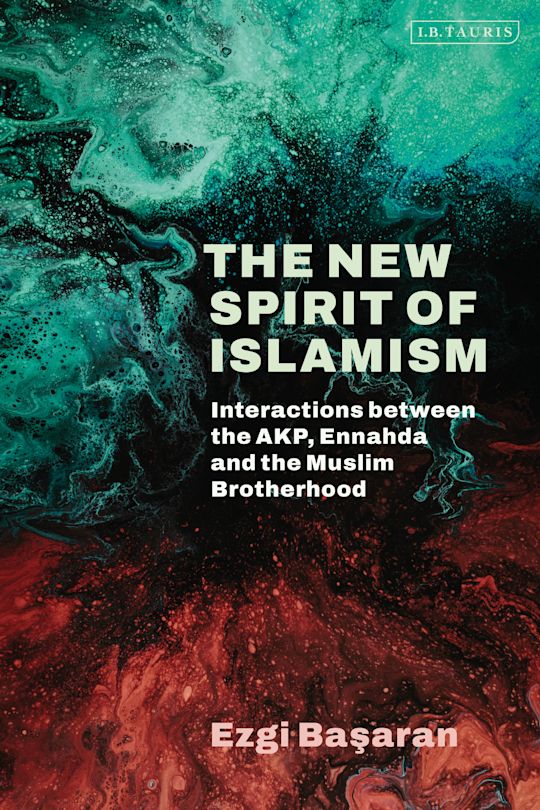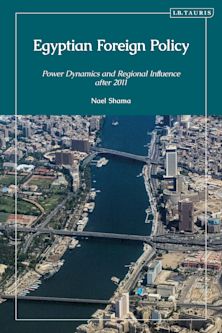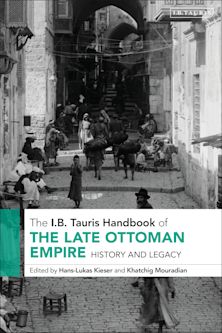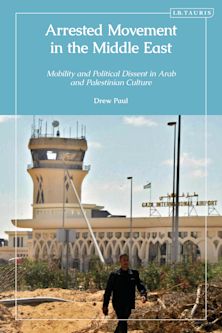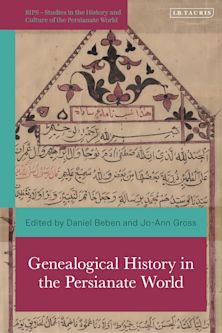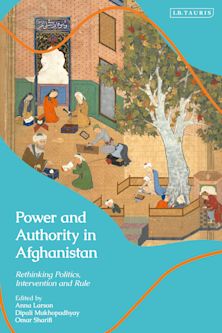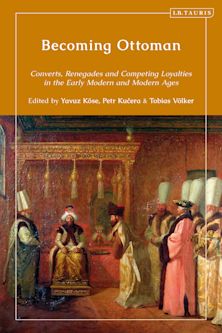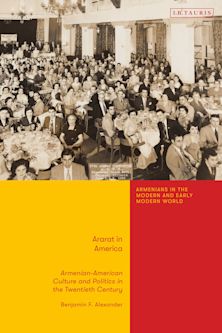- Home
- ACADEMIC
- Middle East
- Modern History
- The New Spirit of Islamism
The New Spirit of Islamism
Interactions between the AKP, Ennahda and the Muslim Brotherhood
The New Spirit of Islamism
Interactions between the AKP, Ennahda and the Muslim Brotherhood
You must sign in to add this item to your wishlist. Please sign in or create an account
Description
This book explains the aspirations and concerns of Islamist actors in the aftermath of the Arab Uprisings by looking at two sets of relationships between Turkey's ruling AKP and the Egyptian Muslim Brotherhood, and the AKP and Tunisia's Ennahda. It presents a unique analysis of the interplay between the AKP, Ennahda and the Muslim Brotherhood, characterizing the actors, the structure and the main features of the relationship and thereby illuminating a political confluence among these three critical Islamist entities in the aftermath of the Arab Uprisings.
Existing scholarship has assumed that this relationship revolves primarily around an ideological Islamist agenda, however, this research demonstrates a more complex and nuanced situation. Ezgi Basaran puts forward that the interplay was not based on an aspiration of building an ideological Islamist bloc in the MENA region, but rather revolved around the concept of political success and had a strong neoliberal ethos. Basaran draws on data collected from over 60 interviews with high-level members of the AKP, Ennahda and Muslim Brotherhood to demonstrate how, in the hope of achieving success and legitimization, Ennahda and the Muslim Brotherhood have relied on the managerial prescriptions provided by the AKP. The contents of this success formula were derived from the AKP's experience as an Islamist party in power since 2002 and includes tactics on crisis evasion, legitimization, winning elections and maintaining power.
Table of Contents
1. Introduction: An indirect line of enquiry
1.1 The purpose
1.2 The construct
1.3 The overview
2 The evolution of Islamism
2.1 From Banna to Morsi
2.2 From Zaytouna to the parliament
2.3 From Milli Görüs to the AKP
3 The history of the interaction
3.1 Erbakan, Ghannouchi and the MB
3.2 The spread of frames for legitimacy
3.3 Conservative/Muslim Democracy and the Turkish Model
3.3.1 The origins of Conservative/Muslim democracy
3.3.2 The origins of the Turkish model
3.3.3 The EU and the Turkish model
4 The context, milestones and actors of the interplay
4.1 The AKP in Cairo, the MB in Ankara and Istanbul
4.2 The AKP in Tunis, Ennahda in Ankara, and Istanbul
4.3 The actors and interlocutors
4.3.1 The elite actors
4.3.2 The interlocutors and structure
4.3.3 Brokers: Al Jazeera and Yusuf Al-Qaradawi
5 The tactics of success for Islamists
5.1 Winning the system
5.2 Service to people is like a prayer
5.3 Protective alliances against the old regime
5.3.1 Threats and alliances for the MB
5.3.2 Threats and alliances for Ennahda
6 Brothers in search of their bourgeoisie
6.1 Road to Neoliberalism
6.2 The economic vision of Ennahda and the MB
6.3 Cultivating an Islamic bourgeoisie
7 The new spirit of Islamism
7.1 Islamist longing for success
7.2 Post-Islamism and managerialism
7.2.1 What do Muslim youth want?
7.2.2 Managerial awakening
7.2.3 Cheap Islamisation
8 Changing dynamics of the interplay
8.1 Post-2013 period: Fear, isolation, and activism
8.1.1 The MB – the AKP
8.1.2 Ennahda – the AKP
8.2 Erdogan's U-turns vis-a-vis the MB
8.3 The current crisis, democracy, and Islamism
9 Conclusion: The sink, the cooker, and Islamism
Appendix
Bibliography
Product details
| Published | 02 May 2024 |
|---|---|
| Format | Ebook (Epub & Mobi) |
| Edition | 1st |
| Extent | 256 |
| ISBN | 9780755652969 |
| Imprint | I.B. Tauris |
| Publisher | Bloomsbury Publishing |
About the contributors
Reviews
-
The New Spirit of Islamism usefully contributes to our understanding of Islamist politics by demonstrating how influence among different movements occurs and how local dynamics evolve the movements. The need to prove you can govern and the realisation that society is diverse and made up of different actors, forced the AKP, the Muslim Brotherhood and Ennahda to undergo a transformation with differing results and outcome. The New Spirit of Islamism is an intriguing text to think through, and with, in making sense of the dynamics of Islamist politics in the MENA region.
Middle East Monitor
-
By Examining the interplay among the Turkish AKP, Egyptian Muslim Brotherhood, and Tunisian al-Nahda in the wake of the Arab uprisings, Ezgi Basaran offers an innovative perspective to examine the evolution of Islamism in the current times. The book is particularly instructive in showing what happens when the oppositional Islamic movements transition into governing bodies. A very valuable contribution to our understanding of political Islam today.
Asef Bayat, Professor, University of Illinois, USA
-
In this meticulously researched examination of the interplay between Islamist political parties, Ezgi Basaran offers invigorating insights into how the transnational diffusion of influence is more tactical than ideological. She robustly challenges reductionist assumptions that simply equate Islamism with Islamisation of state and society, and exceptionalist assumptions that underplay the conventional political calculus even Islamists must make. This work's impressive detail and analytical sharpness compel us to recognise the pragmatic interests at work in Islamists' interactions with each other and to see the pursuit of power and success as the normal stuff of Islamist political agendas.
James Piscatori, Emeritus Professor, Australian National University, Australia
-
A wholly original account of the way in which Islamism has been reshaped globally by market forces. Basaran tells a fascinating story about the initiative to make Islamism in the Arab world more responsive to a variety of constituencies.
Faisal Devji, Professor, University of Oxford, UK









